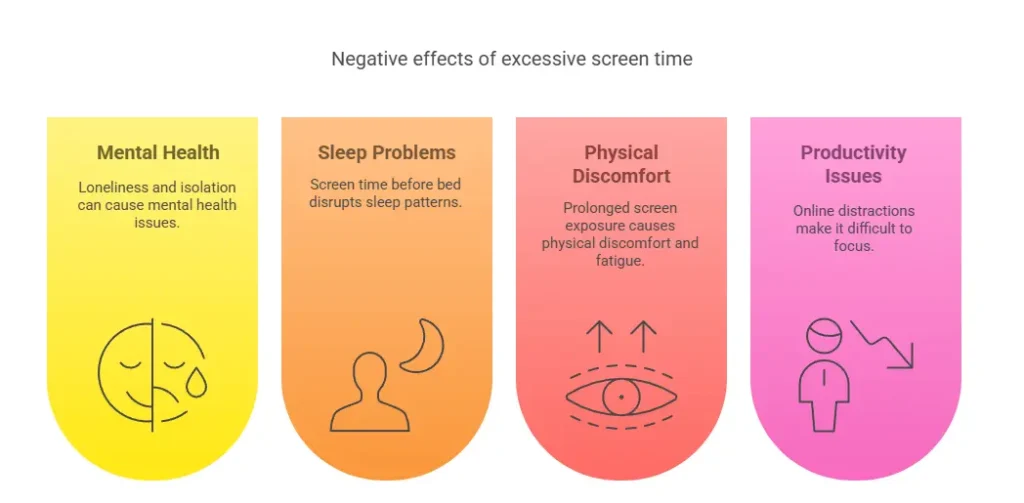Internet addiction is an increasingly prevalent issue in our digital age, affecting individuals across various demographics. As we become more reliant on technology for communication, entertainment, and information, the line between healthy usage and compulsive behavior can blur. This blog post aims to shed light on what internet addiction is, its signs, psychological and physical effects, causes, and effective strategies for overcoming it. Whether you are a concerned parent or a young adult navigating the digital landscape, understanding this phenomenon is crucial for maintaining mental health and well-being.

What is Internet Addiction?
Internet addiction, often referred to as online addiction, is characterized by excessive and compulsive use of the internet that interferes with daily life. It can manifest in various forms, including social media addiction, gaming addiction, or compulsive browsing. While the internet can be a valuable resource, when usage becomes uncontrollable, it can lead to negative consequences in personal, social, and professional spheres.
In India and globally, the rise of smartphones and easy access to the internet has contributed to this growing concern. Many individuals find themselves spending hours online, often at the expense of face-to-face interactions and other essential activities.
Common Signs of Internet Addiction
Recognizing the signs of internet addiction is the first step toward addressing the issue. Here are some common indicators:
- Excessive Screen Time: Spending more time online than intended.
- Neglecting Responsibilities: Ignoring work, school, or home duties due to online activities.
- Social Withdrawal: Preferring online interactions over real-life connections.
- Mood Swings: Experiencing irritability or anxiety when unable to access the internet.
- Loss of Interest: Disinterest in hobbies or activities that do not involve the internet.
- Compulsive Behavior: Feeling compelled to check notifications or browse the internet frequently.
If you or someone you know exhibits these signs, it may be time to evaluate internet usage and its impact on daily life.
Psychological and Physical Effects
The effects of internet addiction can be both psychological and physical. Some of the common consequences include:
- Anxiety and Depression: Increased feelings of loneliness and isolation can lead to mental health issues.
- Sleep Disturbances: Excessive screen time, especially before bed, can disrupt sleep patterns.
- Eye Strain and Fatigue: Prolonged screen exposure can cause physical discomfort and fatigue.
- Decreased Productivity: Difficulty focusing on tasks due to constant distractions from online activities.

Understanding these effects can motivate individuals to seek help and make necessary changes.
Causes and Risk Factors
Several factors can contribute to the development of internet addiction. These include:
- Social Isolation: Individuals who feel lonely may turn to the internet for connection.
- Low Self-Esteem: Some may use online platforms to escape feelings of inadequacy.
- Mental Health Issues: Conditions like anxiety or depression can lead to increased screen time as a coping mechanism.
- Accessibility: The easy availability of the internet through smartphones and other devices makes it easier to indulge excessively.
Recognizing these causes can help individuals understand their relationship with technology and identify potential triggers.
How to Manage and Overcome Internet Addiction
Overcoming internet addiction is a gradual process that requires commitment and self-awareness. Here are some effective strategies:
- Set Time Limits: Use apps or built-in features on devices to monitor and limit screen time.
- Engage in Offline Activities: Rediscover hobbies and interests that do not involve screens, such as reading, sports, or arts and crafts.
- Practice Digital Detox: Designate specific times or days to unplug from all digital devices.
- Seek Support: Talk to friends or family about your struggles; having a support system can make a significant difference.
- Consider Professional Help: Therapy or counseling can provide valuable tools and strategies for managing compulsive behavior.
If you find it challenging to implement these changes on your own, reaching out to a mental health professional can be a beneficial step.
Conclusion
Internet addiction is a serious issue that can impact mental health and overall well-being. By recognizing the signs, understanding the effects, and implementing strategies to manage usage, individuals can regain control over their relationship with technology. If you or a loved one is struggling with internet addiction, consider reaching out to mental health professionals at Manchaitanya.com. Remember, seeking help is a sign of strength, and you don’t have to navigate this journey alone.






